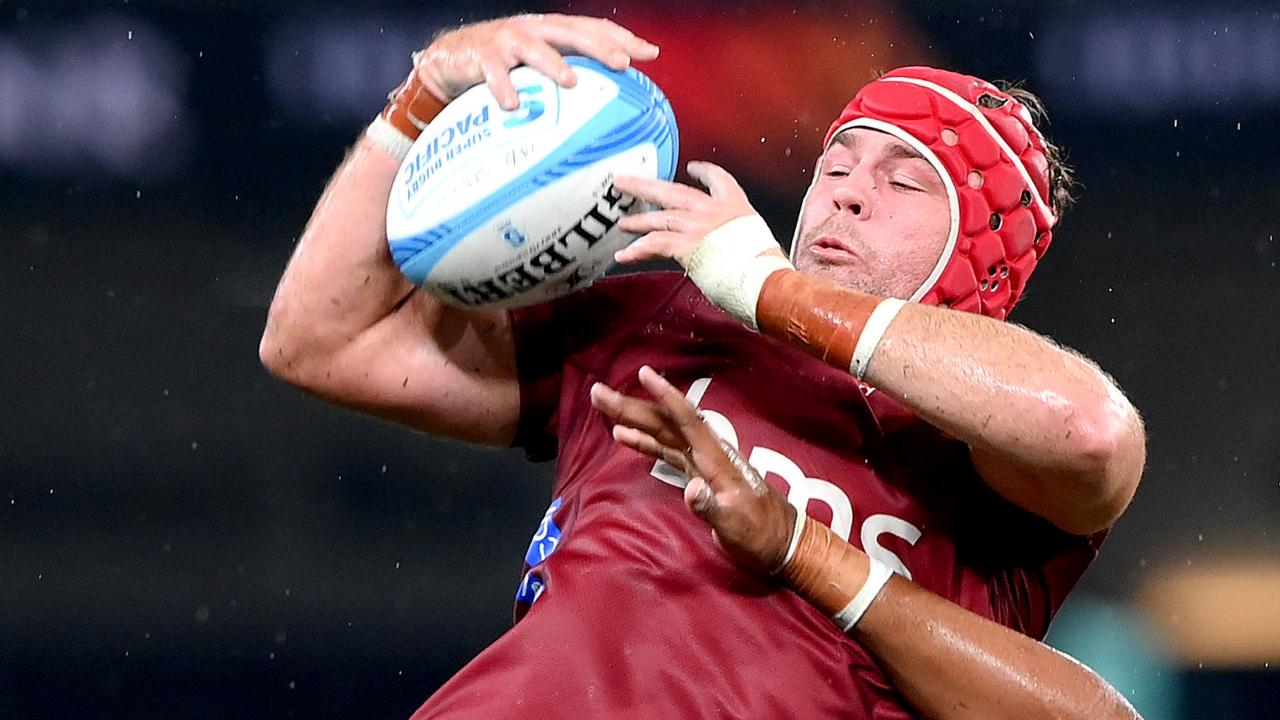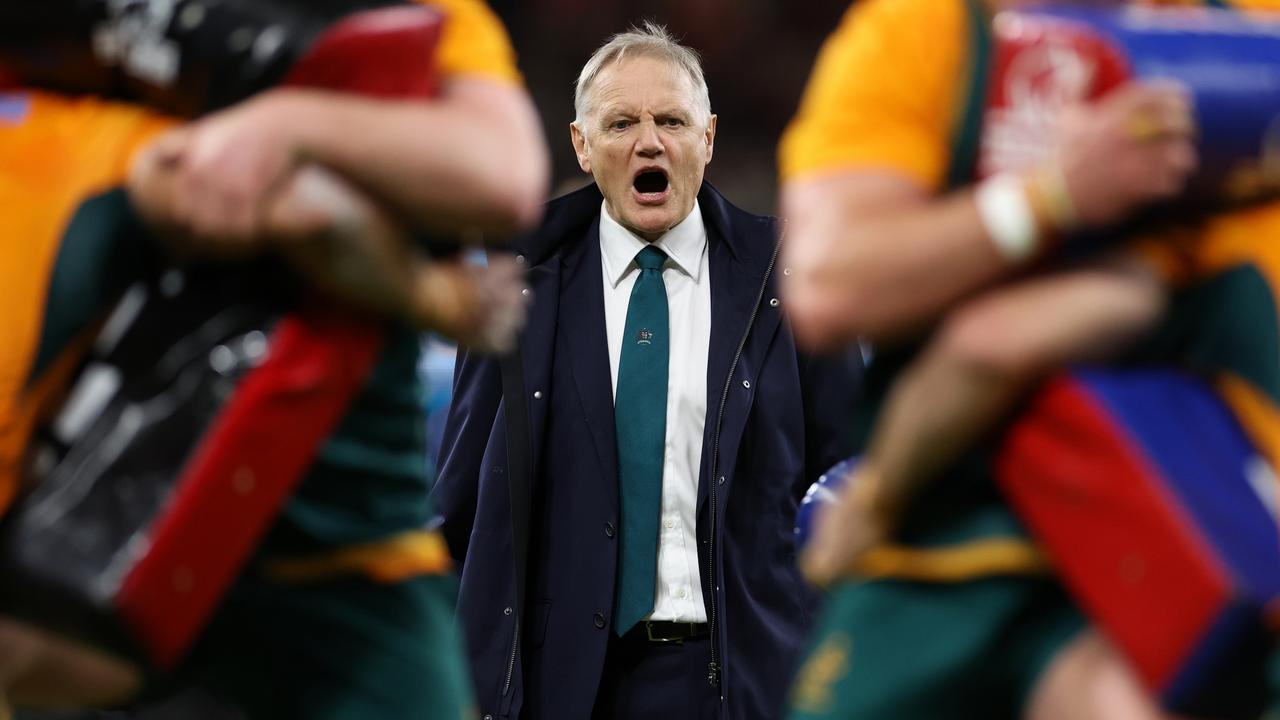Fomer Wallabies coach Michael Cheika admits he should’ve quit ahead of 2019 Rugby World Cup
Former Wallabies coach Michael Cheika has made the confession that he should have walked away before last year’s dismal World Cup campaign - because he’d lost the trust of Rugby Australia.
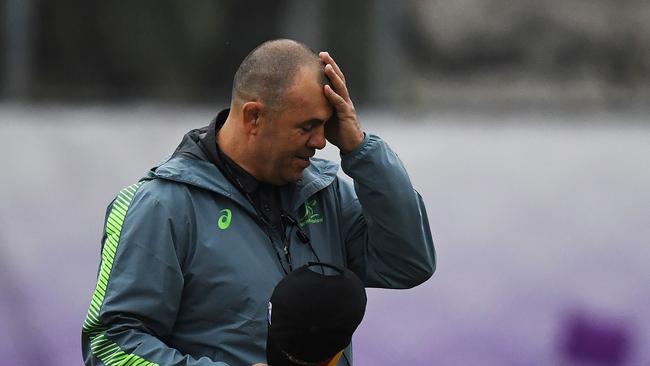
Rugby
Don't miss out on the headlines from Rugby. Followed categories will be added to My News.
Former Wallabies coach Michael Cheika has said he should have quit the job in early 2019 after Rugby Australia (RA) brought in Scott Johnson as director of rugby and introduced a three-man selection panel.
Cheika stayed in the job until the World Cup in Japan later in the year and quit after the Wallabies were thrashed 40-16 by England in the quarter-finals. The 53-year-old told Britain’s The Times newspaper on Sunday he should have stood down earlier, because he felt that Rugby Australia’s management had lost confidence in him.
“In a footy team there can only be one boss, that’s all there is to it,” Cheika said.
“I should have left because that shows they didn’t trust me any more.”
Watch full or condensed replays of the 2020 Vodafone Super Rugby season with Kayo. New to Kayo? Get your free trial and start streaming instantly >
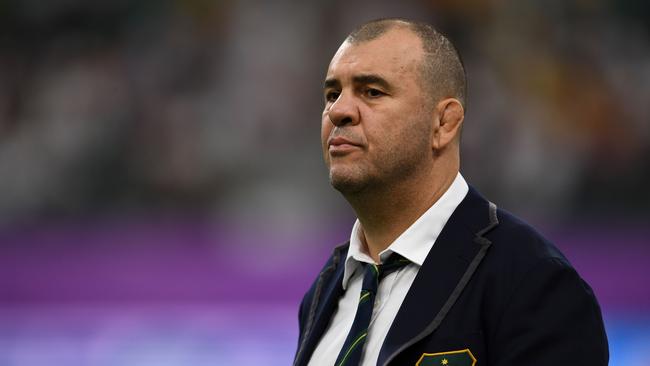
RA appointed Johnson following a review into the Wallabies’ 2018 season when they lost nine of their 13 Test matches and there were suggestions Cheika should be sacked.
The former Waratahs coach added while he did not agree with the decision to appoint Johnson, he had felt he could get the team to perform well enough to clinch their third World Cup title in Japan.
“I loved Australian rugby and I thought I could do it, I believed I could get the players together and I didn’t want to let the players and the supporters down,” Cheika said.
“I tried to manage it the best way I could without being out of order. “If you cause turbulence at that point, everyone feels it and I didn’t need everyone to feel the turbulence in the team.
“You have to deal with it internally.”
Cheika ended his tenure as coach after the World Cup saying he had virtually no relationship with then RA chief executive Raelene Castle and chairman Cameron Clyne, who have both since stepped down.
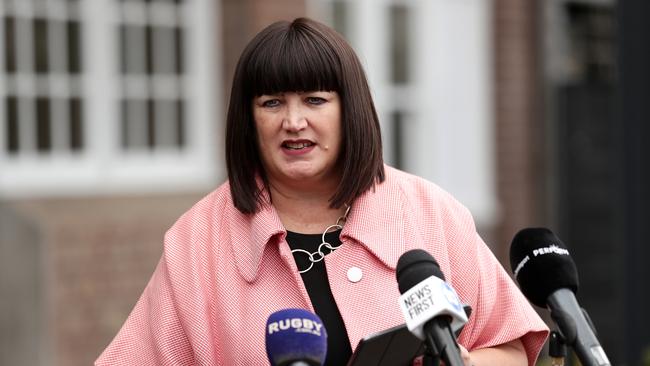
Rugby Championship ‘hub’ in Australia on the cards
Playing The Rugby Championship in an Australian “hub” in October is being planned by SANZAAR executives.
New Rugby Australia boss Rob Clarke confirmed the proposal during an in-depth interview with The Sunday Telegraph, while also declaring the organisation’s financial audit will finally be signed next week, underlining the game’s viability.
Clarke addressed the biggest issues in the game: the lack of a broadcast deal from next year, speculation there will be a mass exodus of top Wallabies due to an inability to guarantee their salaries, while confirming there will be significant job losses at RA in the next fortnight.
“Once our accounts are signed off, and the assumptions built into our plan are very conservative assumptions, I’d like to reassure everybody out there in the rugby community that the plan is solid and the game is alive,’ Clarke said.
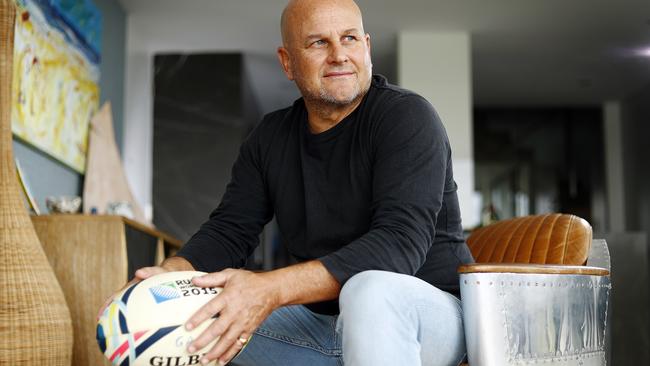
“And anybody saying otherwise, I would question their motivation.
“I’m confident we have a game in the future, and I’m confident it will be an exciting game.”
HELD TO ACCOUNT
Accounting firm KPMG has refused to sign off on RA’s 2019 financial statement for months, citing reservations about the game’s revenue streams after receiving the document from Clarke’s predecessor, Raelene Castle.
Having taken over a fortnight ago, Clarke has secured a $14.2 million loan from World Rugby to stave off insolvency, and is confident that assumed revenue streams over coming months will satisfy KPMG.
“The hold up has been, any organisation going through its audit needs to demonstrate that it is a going concern for the following 12 months, the fact that we don’t currently have a broadcast partner locked in for next year and beyond means we need to provide a level of comfort to KPMG that we have plans in place to do that,” Clarke said.
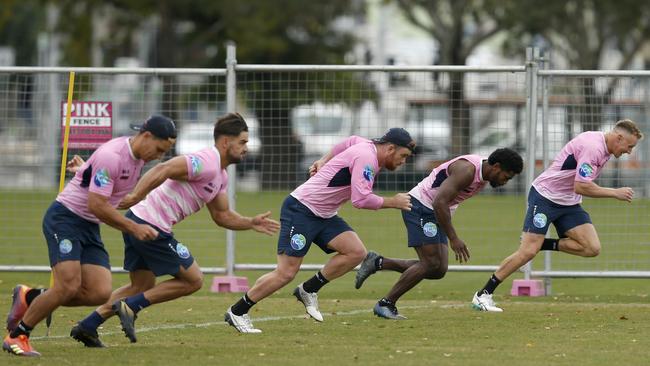
“And that plays in along with new revenue streams that we need to factor into our accounts into the future.
“Of course under a COVID environment, there is so much uncertainty even in regards to this year around our product, which is playing footy, the revenue with broadcasters and commercial partners all needs to be renegotiated.
“Auditors aren’t risk-takers, they’ll only sign those accounts if they are positive that the assumptions built into the next 12-month forecast are sound.
“I’m happy to say that I believe we are now in the final throes of having those accounts signed and I hope to have positive news by the end of next week.
“They’ve gone through every single line item of our business and we’ve given them our view around each line item and they’ve taken that into account.”
CUTS COMING
Securing the game’s finances will also mean job losses across RA and the four Super Rugby franchises.
“The restructuring within Rugby Australia will be complete within the next two weeks,” Clarke said.
“I’d like to make people aware as soon as possible, because these are uncertain times and nervous times, and it’s unfair to leave that hanging.
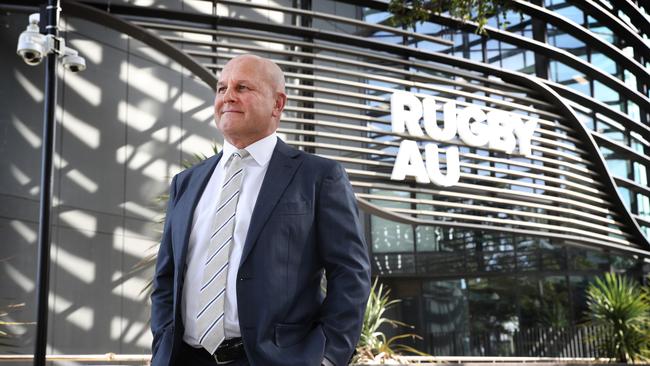
“With the member unions we’re going through a process that might take a month or two, we’re just working through every single aspect of their business and ours, and where they intersect, and opening up ideas on how we can work smarter.
“Out of that will come further structural change, but at this point I’m just focusing on Rugby Australia.
“I’m very conscious of the human side of this which is difficult and I’m very sensitive as to how we do this.
“We have the need to address that issue, we will do so in the next couple of weeks, I believe I’ll successfully map out a plan of what that looks like.
“We just need to rationalise, like so many businesses.
“We need to prioritise our focus around programs and initiatives that must be delivered, versus areas that are nice to have but can wait to be executed further down the track.
“We’re in weekly discussions with our member unions, in particular the Super Rugby unions, around where we can work smarter, whether we can take duplication out of their system and ours and deliver outcomes that benefit both at a lower cost.

“I’m delighted with the response and connection I’m having with the four Super Rugby CEOs, they’ve been very open and honest with me, as I have been with them, and collectively we’re all on the same page as to what we need to do to come through this a fitter and healthier operation.”
AUSTRALIAN HUB
It is critical for RA’s bottom line that matches resume again.
Clarke is hopeful of finalising the revamped 2020 domestic Super Rugby tournament — set to include the Western Force and kick off on July 3 — by the end of next week.
However, the real revenue would come from a truncated World Cup-style The Rugby Championship this year featuring the world champion Springboks, New Zealand and Argentina all playing within Australia.
“There’s absolute commitment from the SANZAAR partners to deliver a TRC this year, but rather than the traditional, it’s more likely to be a hub-based TRC,” Clarke said.
“We can do it in the October-November time frame.
“If we can fly international teams into a hub like Australia that sits in the middle of our territories, and put together a competition structure that might well be more towards a Rugby World Cup-type structure where there might be midweek games and weekend games, try to condense it as much as possible, we’re looking at that as a potential solution.
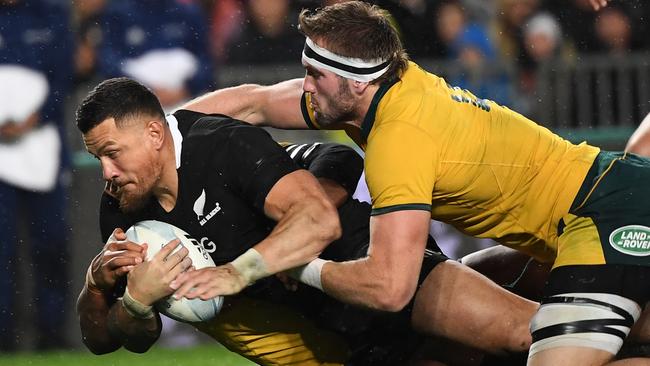
“The SANZAAR exec is working hard on putting that model together and we’d be delighted to host that.
“In the event that South Africa and Argentina just can’t travel through restrictions, then we are well down the path in discussions with New Zealand to run a three or four Test match Bledisloe series both home and away.
“We’re assuming the borders have opened up between our two countries and we can travel. Based on what the governments are saying, it’s a reasonable assumption.”
TUNING IN A TV DEAL
While Test matches this year will bring in crucial cash, rugby cannot survive without a broadcast deal from 2021 and beyond.
The lack of such a deal has top Wallabies stars considering moves overseas, fearing that whatever money is earned on the broadcasting contract will not allow RA to fulfil the agreed terms of all players.
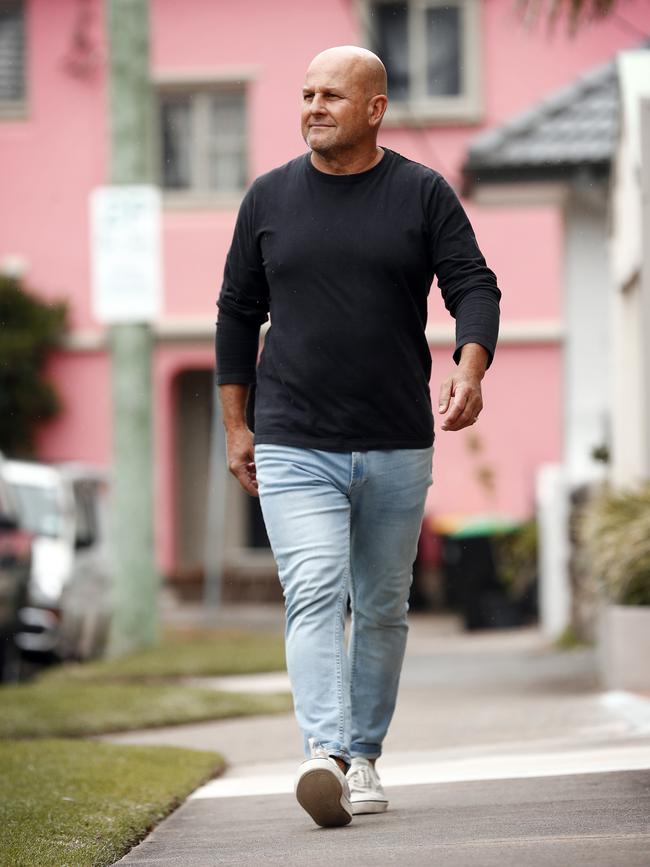
Clarke is not talking to any broadcasters about next year’s package yet, but is aware of what it will mean for the game’s future.
“It’s most critical, no doubt about that, we need to have a reasonably clear understanding of what product we’re going to have to be able to take to our broadcast partners or those that may be interested in rugby before we can start that process,’ Clarke said.
“The focus has been very much on getting 2020 sorted, but as we look to 2021 I think it’s fair to assume our world is still likely to have a COVID hangover in some respects and that may well impact some of our current SANZAAR partners and their ability to deliver product internationally.
“We need to assume in some scenarios that is the case, we need to look to alternative competition structures that may be valuable to us.
“The 14-team round robin competition has been sold to various markets, but whether that can be delivered or not is a serious question, so where do we go if that can’t? We haven’t yet landed on a preferred model, we are exploring all options.
“We’re taking time to work through what is feasible, what makes commercial sense, and what will engage fans and bring great interest back to rugby in areas it might have been waning in recent years.
“When we have certainty around what the model looks like, then we will engage with broadcasters to see how they feel about what we’re putting forward, and indeed what input they’d like to have.
“I’d love it to be weeks, but it may end up being months.
“I’m naturally optimistic, but I really do believe it’s realistic at this point.”
PLAYER EXODUS
Clarke has a message for Wallabies exploring overseas options, while adding that RA is not yet considering scrapping the Giteau Law that would enable overseas-based players to be picked for Australia.
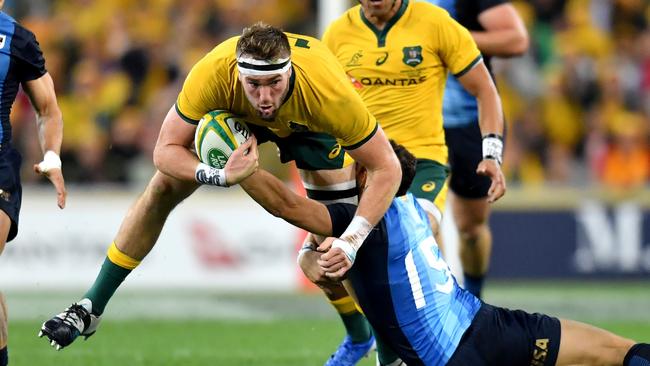
“The grass does look greener in other parts of the world from time to time, but my understanding is by way of example, that the English club system is going to have to drop its salary cap by 50 per cent and change their rules around player payments because they have some major financial challenges in that model over there,” Clarke said.
“So while there have been in the past cashed up unions, there’s pressure on player wages, the economy is changing everywhere, we’re not the only ones going through it, every single country is.
“We all have to work our way through it and cut our costs to suit.
“We will fight for that because it’s imperative the Wallabies do have their best talent on the world stage.
“There hasn’t been any formal discussion on [scrapping the Giteau Law), I know there’s been speculation but it hasn’t come across my desk as a priority right now.”
Originally published as Fomer Wallabies coach Michael Cheika admits he should’ve quit ahead of 2019 Rugby World Cup

